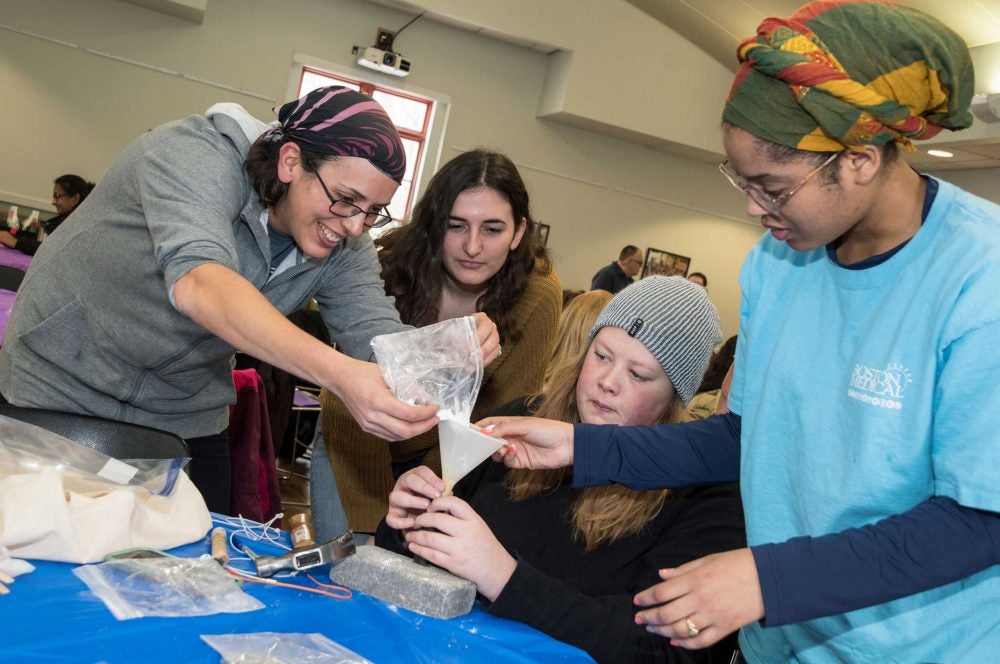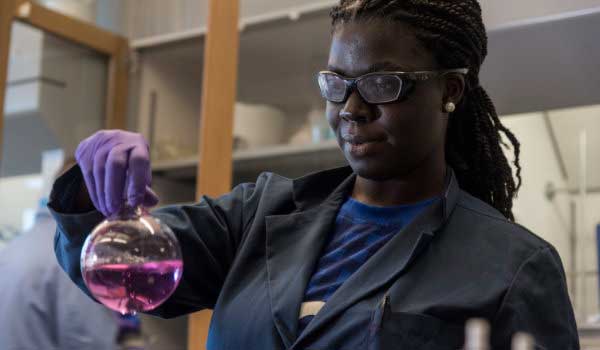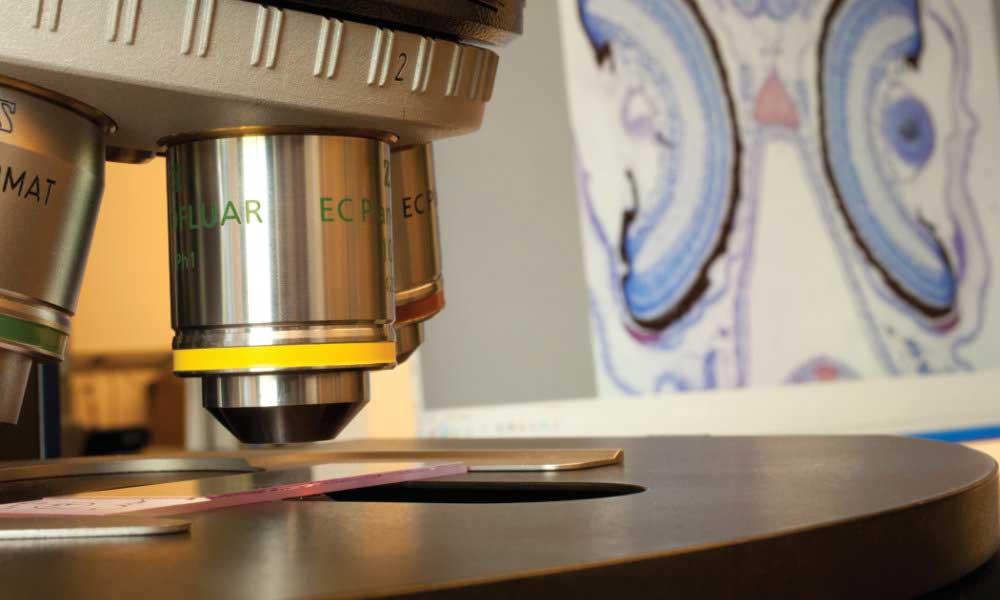
Professor Mindy Levine and sophomore chemistry major Adelaide Levenson work with high school student Juniper Park and Bridgewater State student Myrria Tahisha Lynchee on a “Sugar Science” project.
In her research, Adelaide Levenson has worked on the development of flame-retardant textiles, studied supramolecular compounds’ ability to capture pollutants from water, and assisted in the development of devices that detect nutrients in contaminated seawater.
With a background like that, you might assume Levenson is a professor or a master’s degree candidate. But the chemistry major is a second-year undergraduate student whose intelligence and enthusiasm for science drew the attention of her instructors and led to an invitation to participate in three different research projects. For Levenson, the work has made for a transformative education and earned her both an undergraduate research grant and a fellowship.
“URI provides the hands-on opportunities to get that extra knowledge I might not have otherwise gained by sitting in a classroom,” Levenson ’21 said. “And you can get such opportunities early on in your academic career.
“At URI, they want you to do your best, so they will see to it that you do your best,” Levenson added.
In her short academic career at URI, Levenson has proven herself to be a top-notch researcher, says her mentor Mindy Levine, an associate professor in the chemistry department.
Research in Action
“Adelaide has made outstanding contributions in a variety of our research endeavors,” Levine says. “She has run experiments, compiled data, analyzed results, and drawn conclusions.
“The entire pathway of running experiments to drawing scientific conclusions is not something that comes easy to most people, but Adelaide has made it appear so natural as to be almost effortless,” Levine adds.
Levenson has also contributed to two scientific papers now in review by scientific journals. And her research work has earned Levenson an Undergraduate Research Initiative Award from the University and a National Science Foundation EPSCoR summer undergraduate research fellowship.
“I am so impressed by Adelaide’s understanding of the science, and even more impressed by her uncanny ability to communicate that science,” Levine said. Levenson will be presenting her research at the National Meeting of the American Chemical Society at the end of March. At the meeting, Levenson will be part of a special poster session where she will join other winners of the prestigious Eli Lilly Travel Award to present her research to a select audience.
“It becomes so easy to forget that the things she is doing and accomplishing are simply outstanding.”


